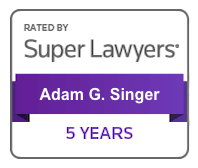Debt Defense

What Actions Can a Creditor Take If I Cannot Pay My Debts?
In some cases, a creditor may bring a lawsuit against you. If a court issues a judgment against you — including by default — against you, the creditor can potentially seize your assets, freeze your bank accounts, and garnish your wages.
What is a Default Judgment?
A judgment, in most cases, is a court decision that determines that a debtor owes money to a creditor.When a borrower fails to file a written response to a complaint or does not appear in court for a hearing or trial, he or she is considered to be in default. At this point, the court will issue a default judgment against the borrower and will usually award the creditor the amount demanded in the complaint. In some cases, the court will also award the plaintiff attorneys’ fees.
How Can an Attorney Challenge a Default Judgment?
While the courts are responsible for ensuring judgments are properly awarded, the system is not perfect. If a default judgment has already been filed against you, a skilled attorney can determine if there are grounds to vacate or “set aside” the judgment. In many instances, by the time the default judgment is vacated, the statute of limitations for collecting the debt has already expired. As a result, the case may be dismissed and the creditor becomes permanently barred from bringing any future claims.
Flaws in the System May Lead to Improper Default Judgments
In many cases, the courts will issue default judgments against debtors even though the debtor never received an actual notice of the lawsuit. This typically occurs for one of two reasons:
1. Improper Service of Process – Debtors have a constitutional right to be notified of lawsuit filed against them. Unfortunately, however, it is still common for debt collectors or their personal representatives (process servers) to fail to properly deliver such notices and then falsely state that they properly served the alleged debtor. This unscrupulous tactic is frequently referred to as sewer service. In New York, there are regulations designed to curb this practice.
2. Identity Theft – Another reason individuals may become targets of debt collectors is that their identities have been stolen. If an identity thief obtains access to your personal information, a thief may access credit may be in your name without your knowledge. The debts that then accumulate will go unpaid and result in debt collection and possibly a lawsuit. If you have been served with documents that allege nonpayment of one or more debts you do not recognize, do not ignore them; consult with an attorney as soon as possible for your own protection.
If you are subject to debt collection efforts, a lawsuit, or the enforcement of a judgment, you should consult with an attorney as soon as possible to defend your rights and protect your assets. An attorney can help determine whether you have grounds to dispute the alleged debt in a lawsuit or defend you if have been the victim of improper service or identity theft.
Consumers are Protected from Harassment and Abuse
Regardless of whether a debt is valid, consumers are legally protected from the harassment and abuse of debt collectors (Link) by the Fair Debt Collections Practices Act (FDCPA). Various New York State statutes also protect consumers from unfair debt collection practices. These federal and state laws prohibit debt collectors from annoying, abusing, or harassing borrowers, irrespective of the debt’s validity.
Facing a Debt Collection Suit or a Default Judgment? Our Firm May be Able to Help
If you are being sued by a creditor or debt collector, call our office for a consultation. We can advise you about defending your rights, preventing a default judgment from being entered against you, and determine if there are grounds to vacate a judgment that the court has already issued.






